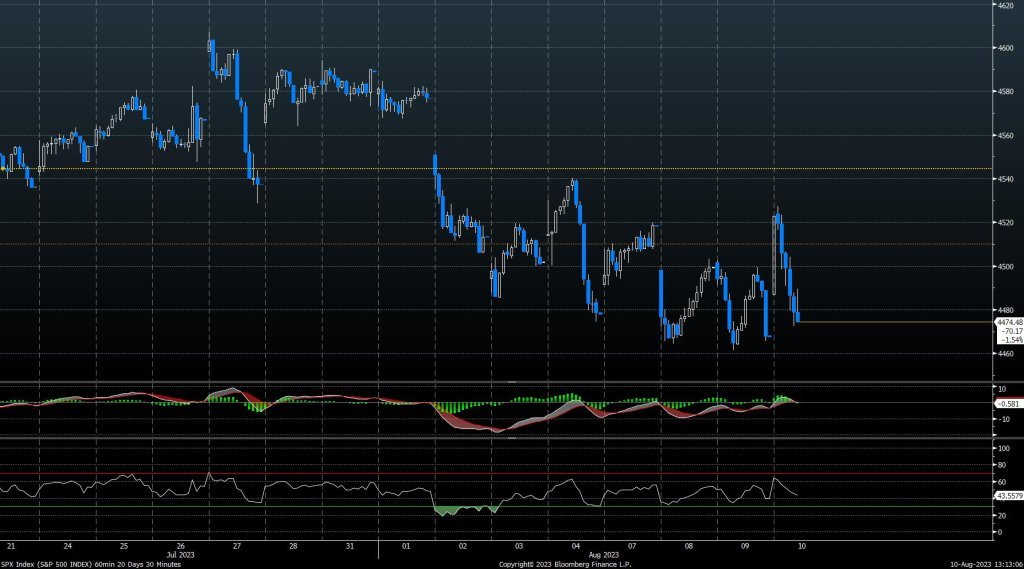-
Research
-
Latest Research
-
Latest VideosFSI Pro FSI Macro FSI Crypto
- Tom Lee, CFA AC
-
First WordFSI Pro FSI Macro
-
Intraday WordFSI Pro FSI Macro
-
Macro Minute VideoFSI Pro FSI Macro
-
OutlooksFSI Pro FSI Macro
- Mark L. Newton, CMT AC
-
Daily Technical StrategyFSI Pro FSI Macro
-
Live Technical Stock AnalysisFSI Pro FSI Macro
-
OutlooksFSI Pro FSI Macro
- L . Thomas Block
-
US PolicyFSI Pro FSI Macro
- Market Intelligence
-
Your Weekly RoadmapFSI Pro FSI Macro FSI Weekly
-
First to MarketFSI Pro FSI Macro
-
Signal From Noise
-
Earnings DailyFSI Pro FSI Macro FSI Weekly
-
Fed WatchFSI Pro FSI Macro
- Crypto Research
-
StrategyFSI Pro FSI Crypto
-
CommentsFSI Pro FSI Crypto
-
Funding FridaysFSI Pro FSI Crypto
-
Liquid VenturesFSI Pro FSI Crypto
-
Deep ResearchFSI Pro FSI Crypto
-
-
Webinars & More
- Webinars
-
Latest WebinarsFSI Pro FSI Macro FSI Crypto
-
Market OutlookFSI Pro FSI Macro FSI Crypto
-
Granny ShotsFSI Pro FSI Macro FSI Crypto
-
Technical StrategyFSI Pro FSI Macro FSI Crypto
-
CryptoFSI Pro FSI Macro FSI Crypto
-
Special GuestFSI Pro FSI Macro FSI Crypto
- Media Appearances
-
Latest Appearances
-
Tom Lee, CFA AC
-
Mark L. Newton, CMT AC
-
Sean Farrell AC
-
L . Thomas Block
-
⚡FlashInsights
-
Stock Lists
-
Latest Stock Lists
- Super and Sleeper Grannies
-
Stock ListFSI Pro FSI Macro
-
CommentaryFSI Pro FSI Macro
-
HistoricalFSI Pro FSI Macro
- SMID Granny Shots
-
Stock ListFSI Pro FSI Macro
-
PerformanceFSI Pro FSI Macro
-
CommentaryFSI Pro FSI Macro
-
HistoricalFSI Pro FSI Macro
- Upticks
-
IntroFSI Pro FSI Macro
-
Stock ListFSI Pro FSI Macro
-
PerformanceFSI Pro FSI Macro
-
CommentaryFSI Pro FSI Macro
-
FAQFSI Pro FSI Macro
- Sector Allocation
-
IntroFSI Pro FSI Macro
-
Current OutlookFSI Pro FSI Macro
-
Prior OutlooksFSI Pro FSI Macro
-
PerformanceFSI Pro FSI Macro
-
SectorFSI Pro FSI Macro
-
ToolsFSI Pro FSI Macro
-
FAQFSI Pro FSI Macro
-
-
Crypto Picks
-
Latest Crypto Picks
- Crypto Core Strategy
-
IntroFSI Pro FSI Crypto
-
StrategyFSI Pro FSI Crypto
-
PerformanceFSI Pro FSI Crypto
-
ReportsFSI Pro FSI Crypto
-
Historical ChangesFSI Pro FSI Crypto
-
ToolsFSI Pro FSI Crypto
- Crypto Liquid Ventures
-
IntroFSI Pro FSI Crypto
-
StrategyFSI Pro FSI Crypto
-
PerformanceFSI Pro FSI Crypto
-
ReportsFSI Pro FSI Crypto
-
-
Tools
-
FSI Community
-
FSI Snapshot
-
Market Insights
-
FSI Academy
-
Book Recommedations
- Community Activities
-
Intro
-
Community Questions
-
Community Contests
-
Part 4
What about leveraged ETFs and crypto ETFs? Why do ETFs sometimes deviate from underlying assets?
Leveraged ETFs give investors a way to augment returns or insulate against the downside more cheaply in principle. However, you should NEVER assume that these correlations will be good. The nature of the derivatives instruments necessary to create a double or triple leveraged ETF will inherently create more risk than funds that mimic an asset on a one-to-one basis generally.
So, it is extra important to monitor the correlations here. The results are achieved using equity swaps, futures, rebalancing, and re-indexing. All these methods are prone to human error or other risks in execution that can cause prices to deviate. Market conditions, excessive demand or supply, and regulatory action can all cause the price to differ from NAV. In the case of crypto, extreme enthusiasm for an exchange-traded way to access this exciting new asset class likely causes significant premiums that can sometimes get into the triple digits.
The crypto example is an excellent allegory for how ETFs help investors expand access. As demonstrated by the overwhelming demand for cryptocurrency trusts formed by both Grayscale and bitwise, traditional investors are taking a serious interest in making digital assets a part of their portfolios. Many investors would not be able to get access to these sometimes-cumbersome assets otherwise.
Visit our FSI Sector allocation, a strategy designed to outperform the S&P 500 by actively managing one’s sector exposure without taking on additional portfolio risk
Take me to the FSI Sector AllocationHowever, a key component still missing from the crypto investment landscape is an SEC-approved crypto ETF. Crypto-adjacent ETFs in the US offer exposure to companies that operate within the crypto ecosystem, but none are directly tied to an underlying digital asset such as Bitcoin or Ether. IT is essential to note that while crypto ETFs are restricted on a domestic basis, a shortlist including Canada and Brazil has led to getting Ethereum and Bitcoin ETFs approved.
While trusts and direct asset purchases from crypto exchanges have partially satiated the considerable appetite of investors, the benefits of ETFs we have previously outlined seem particularly suited to give retail investors access to this high-alpha asset. ETFs, simplify access for market participants since they trade on significant indexes and remove custodial and security issues of directly holding cryptocurrency. While some brokerages offer access to crypto trusts, it seems that crypto ETFs in the United States would provide better and broader access for investors if approved by the SEC.
For a crypto ETF to move forward, it would require SEC approval. Issues cited by the regulatory body include limited market hours that traditional exchanges offer compared to an asset class traded 24 hours a day. Limited liquidity for large-scale transactions has been cited as a concern, and regulators have even brought up financial stability concerns which should be construed as a backhanded compliment for a previously fringe asset class.
The Winklevoss twins have submitted an ETF application and had it rejected in 2013, and since then, the SEC has denied a long list of bids. There were 16 active Bitcoin ETF applications pending review and 2 Ethereum ETFs pending review at the time of this writing. Many asset managers are cautiously optimistic about SEC approval within the next 12-18 months. However, timelines are always ambiguous and opaque regarding regulatory developments.

Related Guides
-
 Series of 3~5 minutesLast updated2 months ago
Series of 3~5 minutesLast updated2 months agoKeep Calm and Carry on Investing
A guide to managing your emotions during market downturns.
-
 Series of 2~4 minutesLast updated2 months ago
Series of 2~4 minutesLast updated2 months agoFS Insight Decoded
An ad-hoc series that explains sayings frequently used by members of the FS Insight research team
-
 Series of 3~6 minutesLast updated5 months ago
Series of 3~6 minutesLast updated5 months agoYour Price Target Is Likely Going to be Wrong. Here’s Why You Should Set One Anyway.
Price Targets
-
 Series of 3~9 minutesLast updated1 year ago
Series of 3~9 minutesLast updated1 year agoTechnically Speaking – The FS Insight Primer on Technical Analysis
Three-part series on technical analysis


